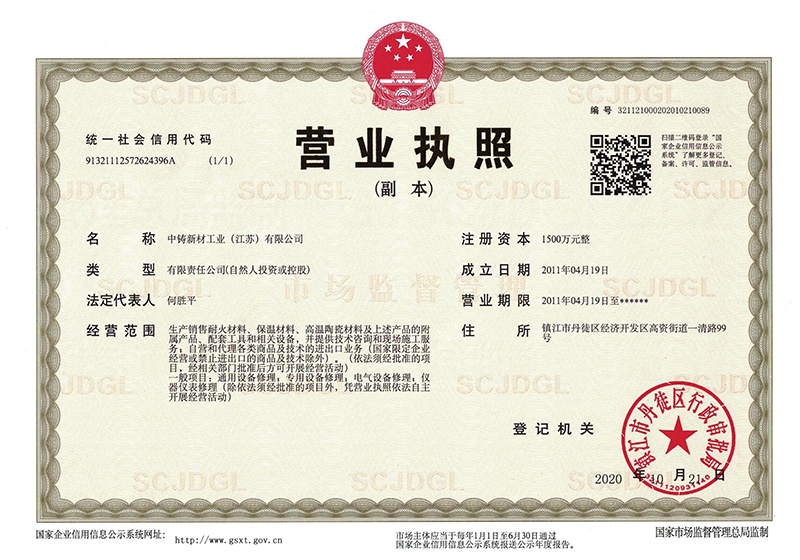News
SINO-FOUNDRY—professional refractory manufacturer
Revolutionizing Fireproof Solutions with Refractory Dry Ramming Mass
2025-04-05
Revolutionizing Fireproof Solutions with Refractory Dry Ramming Mass Table of Contents 1. Introduction to Refractory Dry Ramming Mass 2. What is Refractory Dry Ramming Mass? 3. Key Benefits of Using Refractory Dry Ramming Mass 4. Applications of Refractory Dry Ramming Mass in Various Industries 5. How to Apply Refractory Dry Ramming Mass Effectively 6. Compar
Revolutionizing Fireproof Solutions with Refractory Dry Ramming Mass
Table of Contents
- 1. Introduction to Refractory Dry Ramming Mass
- 2. What is Refractory Dry Ramming Mass?
- 3. Key Benefits of Using Refractory Dry Ramming Mass
- 4. Applications of Refractory Dry Ramming Mass in Various Industries
- 5. How to Apply Refractory Dry Ramming Mass Effectively
- 6. Comparison with Other Fireproof Materials
- 7. The Future of Refractory Dry Ramming Mass in Fireproofing
- 8. FAQs About Refractory Dry Ramming Mass
- 9. Conclusion
1. Introduction to Refractory Dry Ramming Mass
The quest for reliable fireproof solutions has led to significant advancements in materials science, particularly in the construction and manufacturing sectors. Among these innovations is **refractory dry ramming mass**, a specialized material designed to withstand extreme temperatures and protect structures from fire hazards. This article delves into the transformative nature of refractory dry ramming mass, exploring its properties, benefits, applications, and future implications in enhancing fire safety.
2. What is Refractory Dry Ramming Mass?
**Refractory dry ramming mass** is a mixture of refractory aggregates, bonding agents, and additives, formulated to form a dense, heat-resistant material upon installation. Unlike conventional fireproofing materials, dry ramming mass is applied using a ramming technique, which compacts the material into place without the need for water or other fluids. This unique application method results in a robust and durable fire-resistant layer, suitable for a variety of industrial applications.
2.1 Composition of Refractory Dry Ramming Mass
The composition of refractory dry ramming mass typically includes:
- **Refractory aggregates**: These are heat-resistant materials such as alumina, silica, and magnesia that provide structural integrity and thermal stability.
- **Bonding agents**: These components help in achieving cohesion and durability, often comprising inorganic materials that enhance the mass’s fire resistance.
- **Additives**: These are mixed to improve performance characteristics, including workability, flowability, and thermal shock resistance.
3. Key Benefits of Using Refractory Dry Ramming Mass
The adoption of refractory dry ramming mass comes with numerous advantages:
3.1 Exceptional Thermal Resistance
One of the most notable benefits is its ability to withstand extreme temperatures, making it ideal for environments that face high heat, such as kilns and furnaces.
3.2 Reduced Installation Time
The ramming application process significantly reduces installation time compared to traditional fireproofing methods, allowing for quicker project completion.
3.3 Increased Durability
Refractory dry ramming mass offers enhanced durability against mechanical wear and thermal shock, ensuring that fireproofing remains effective over time.
3.4 Cost-Effectiveness
Long-lasting performance and reduced maintenance costs contribute to its cost-effectiveness, making it a preferred choice for many industrial applications.
3.5 Versatility
This material is applicable in various sectors, including metal production, glass manufacturing, and energy generation, proving its versatility and adaptability.
4. Applications of Refractory Dry Ramming Mass in Various Industries
Refractory dry ramming mass is employed across numerous industries where fireproofing is critical:
4.1 Metallurgical Industry
In the metallurgical sector, dry ramming mass is used in furnaces and kilns to protect against high temperatures and corrosive environments.
4.2 Glass Manufacturing
Glass manufacturing processes require materials that can endure intense heat, making refractory dry ramming mass an essential component in glass melting furnaces.
4.3 Cement Industry
Cement kilns utilize refractory dry ramming mass to prevent thermal degradation and maintain structural integrity during production.
4.4 Energy Sector
In power plants and energy generation facilities, this material is utilized to protect equipment and ensure safe operations under extreme conditions.
5. How to Apply Refractory Dry Ramming Mass Effectively
Applying refractory dry ramming mass involves several key steps to ensure optimal performance:
5.1 Surface Preparation
Before application, it is crucial to prepare the surface. This includes cleaning and ensuring that it is free of contaminants that could affect adhesion.
5.2 Ramming Process
The dry ramming mass is compacted into place using specialized tools. This process ensures that the material is densely packed and adheres well to the substrate.
5.3 Curing and Inspection
Post-application, the mass should be cured appropriately to achieve desired properties. Regular inspections ensure that the installation meets safety and performance standards.
6. Comparison with Other Fireproof Materials
When evaluating fireproof solutions, it's essential to compare refractory dry ramming mass with other materials:
6.1 Refractory Bricks vs. Dry Ramming Mass
While refractory bricks offer good thermal resistance, they may require more labor and time for installation. Dry ramming mass simplifies the process and reduces labor costs.
6.2 Sprayable Fireproofing vs. Dry Ramming Mass
Sprayable fireproofing materials can be less durable under high temperatures compared to dry ramming mass, which maintains its integrity in extreme conditions.
6.3 Cementitious Fireproofing vs. Dry Ramming Mass
Cementitious materials typically have slower curing times and may be more susceptible to cracking. In contrast, dry ramming mass offers quicker application and enhanced durability.
7. The Future of Refractory Dry Ramming Mass in Fireproofing
Looking ahead, the future of refractory dry ramming mass appears promising:
7.1 Innovations in Material Science
Advancements in material science will likely lead to even more improved formulations of dry ramming mass, enhancing its fire resistance and application methods.
7.2 Sustainable Practices
As industries increasingly focus on sustainability, the development of eco-friendly refractory materials is anticipated, aligning with global environmental goals.
7.3 Expanding Market Opportunities
With its proven benefits, the demand for refractory dry ramming mass is expected to grow, particularly in emerging markets and developing regions where fire safety standards are becoming more stringent.
8. FAQs About Refractory Dry Ramming Mass
8.1 What is the typical application thickness for dry ramming mass?
The application thickness usually ranges from 50mm to 300mm, depending on the specific requirements of the industry and application.
8.2 Can refractory dry ramming mass be used in high-pressure environments?
Yes, it is suitable for high-pressure environments, particularly in industrial furnaces and reactors.
8.3 How long does it take for dry ramming mass to cure?
Curing times can vary based on the specific formulation and environmental conditions but typically range from a few hours to several days for optimal performance.
8.4 Is dry ramming mass environmentally friendly?
Many modern formulations of dry ramming mass are designed with sustainability in mind, using eco-friendly materials and reducing waste.
8.5 What maintenance is required for structures treated with dry ramming mass?
Regular inspections are recommended to assess the integrity of the mass, and any repairs should be addressed immediately to maintain fire safety standards.
9. Conclusion
Refractory dry ramming mass is a revolutionary solution in the realm of fireproofing materials, offering unparalleled benefits across various industries. Its exceptional thermal resistance, durability, and cost-effectiveness make it a vital component in modern construction and manufacturing practices. By understanding its applications and advantages, industries can significantly enhance their fire safety measures and ensure long-term reliability in their operations. As innovations continue to emerge, refractory dry ramming mass is poised to play an even more critical role in safeguarding structures against fire hazards, marking a significant advancement in material technology.
Related News
2024-11-05
Zhongzhu New Materials Industry sincerely invites you to participate in the 24th International Forum and Exhibition on Recycled Metals.

WeChat public account

View mobile website
Address : No. 99, Yiqing Road, Gaozi Street, EconomicDevelopment Zone, Dantu District, Zhenjiang City
Fax : +86-511-85683066
E-mail : sales@sfr168.com
Website : https://www.sfr168.com
Copyright©2023 Sino-Foundry Refractory(Jiangsu) Co.,Ltd. Powered by:www.300.cn
Copyright©2023 Sino-Foundry Refractory(Jiangsu) Co.,Ltd.
IPV6 | SEO | Cloud Information



